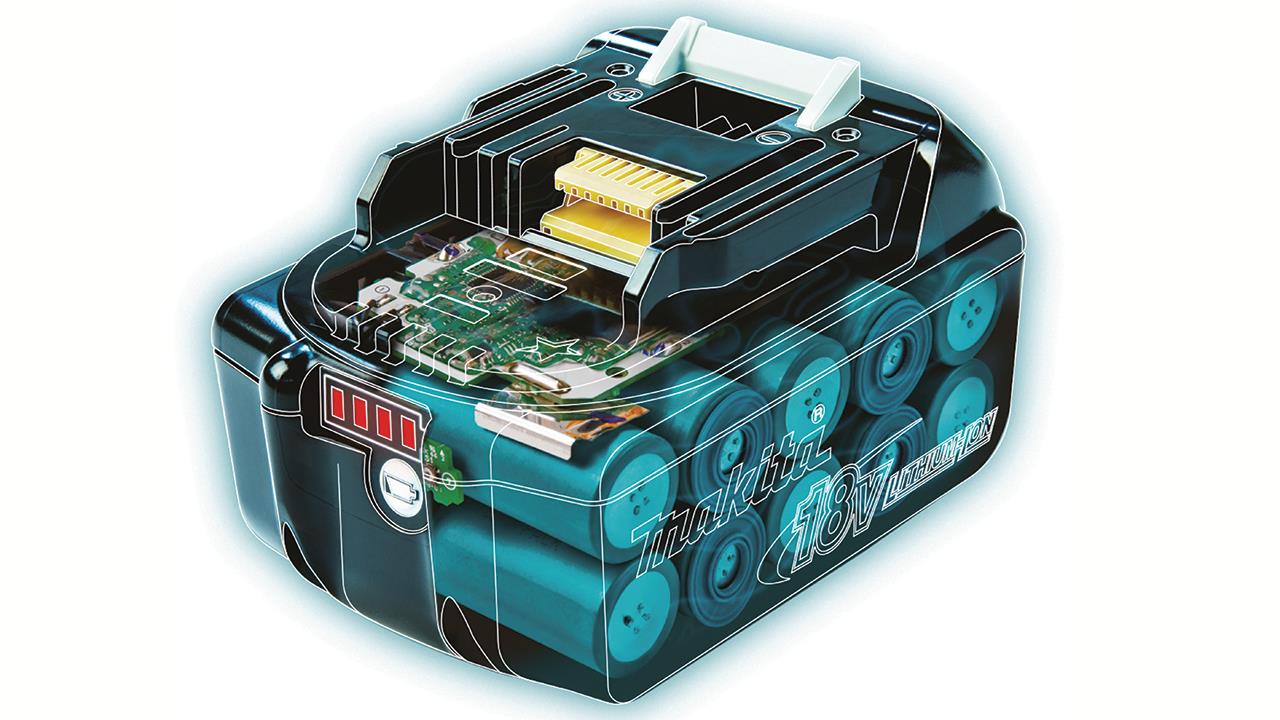

Making the wrong decision when it comes to purchasing batteries for cordless power tools can have devastating consequences, says Tony Coleman, Technical Manager at Makita UK. Here he explains why selecting genuine batteries is safer, and how to spot a genuine from a non-genuine model.
While the internet has provided us all with the ability to obtain products quickly and with minimal hassle, it has unfortunately also made it easier for unvetted vendors to promote and sell replica or even counterfeit products using seemingly legitimate online stores and marketplace accounts to dupe innocent consumers.
In fact, the UK charity Electrical Safety First (ESF) reports that one in three UK consumers has inadvertently purchased a counterfeit electrical item online, believing the product to be genuine.
In many cases, counterfeit products are not manufactured or tested to the quality and safety standards required by the law. This can lead to a product being defective and posing safety risks to its user. It is therefore essential for tradespeople to be vigilant when purchasing electrical products, such as cordless power tools and batteries online, to make sure that they are buying genuine products.
Ensuring user safety
Today’s cordless power tools are powered by lithium-ion batteries; the type that can deliver the long run times and short charge times for professionals. They are often specifically designed to be used with the batteries manufactured by the same company that produces them.
Due to their high energy-density properties, reputable manufacturers will precision-engineer these batteries to control charge and discharge current, cell voltage, and temperature, and ensure their ‘stability’ with rigorous safety-checking procedures.
If the temperature of a lithium-ion battery is not controlled accurately, for example, a ‘thermal runaway’ can occur, triggering a chain reaction that can cause the battery to catch fire or, in a worst-case scenario, explode.
It is unlikely, or indeed difficult to trust, that third-party batteries have undergone the requisite safety measures and controlled manufacturing processes, meaning that these batteries could leak, overheat, or explode. This would not only damage the tool but also present a danger to the user.
Ensuring performance
Third-party batteries are often not guaranteed to provide the same output and performance as genuine models. For example, in many cases, a third-party seller will claim that the batteries have the same Amp hour (Ah) rating as the branded originals.
However, in practice, without the necessary testing and accreditations in place, they are likely to be far less powerful or offer a lesser runtime, and result in the machine not working at its optimum efficiency. This can have a knock-on effect on the user’s on-site productivity and efficiency.
To avoid this, purchasers are advised to check that batteries are tested to IEC 61960 (the equivalent to the UK BS EN 61960 standard). This ensures that the product has been appropriately tested and can deliver the required level of performance.
For example, Makita has refined its own battery technology to optimise battery performance by including a built-in communication chip. This chip works to protect the cells against overload, over-discharge, and overheating during use, and when charging.
Be vigilant
A way of identifying a counterfeit product is by its design. Genuine batteries are often designed with unique and often difficult to replicate features. For example, Makita lithium-ion batteries all feature Makita’s trademark logo and the STAR connectivity mark.
Spelling mistakes, variations on logo design, and differences in the packaging or images can all be signs that the product is not genuine. Products being sold at unusually low prices, even if the website listing them appears ‘safe’, can signal that they are imitations.
Purchasing power tools and batteries from authorised distributors and merchants is a good way to avoid problems. If there is any doubt over whether a battery is genuine or not, it is worth investigating whether the manufacturer offers an inspection service.
Finally, remember that using third-party, or counterfeit batteries is likely to invalidate most manufacturer warranties.
If you'd like to keep up-to-date with the latest developments in the heating and plumbing industry, why not subscribe to our weekly newsletters? Just click the button below and you can ensure all the latest industry news and new product information lands in your inbox every week.